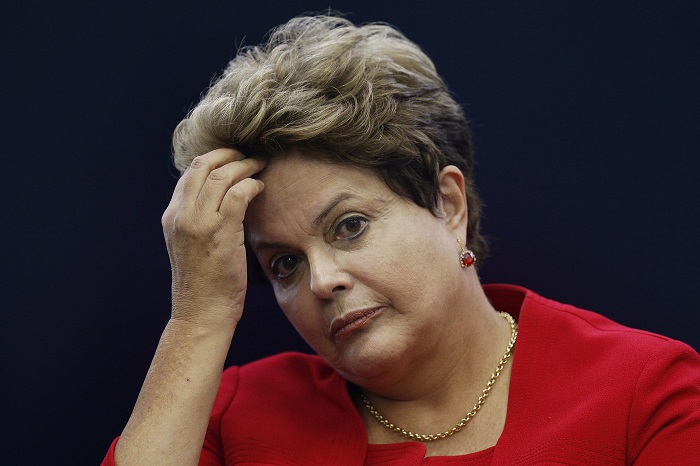As Brazil prepares for the 2016 Summer Olympic Games, its political climate may not be conducive for celebrations to begin. While Brazil’s President, Dilma Rousseff, continues to be embroiled in a corruption scandal, her tenure as president appears to be drawing to a close, as Brazil’s Senate prepares for the impeachment vote. Senate’s vote follows the vote by Congress on Sunday that, by a majority vote, called for the Rousseff’s impeachment.
The final tally of the vote by Congress was 367 votes cast in favour of impeachment, versus 137 against, and seven abstentions. The calls for Rousseff’s impeachment further weaken the economic climate of the country, which is experiencing a worse recession since the Great Depression of the 1930’s. The impeachment process has also divided the country of 200-million people more deeply than at any time since the end of its military dictatorship in 1985.
Foreign correspondent for The Washington Post and contributor to The Guardian, Dom Phillips, explained that Rousseff has not officially been impeached. Rather, the Lower House has voted to open an impeachment trial in which the Senate will make a decision by majority vote. If the Senate votes in line with the Lower House by majority vote, Rousseff will be impeached. Following a possible impeachment, Rousseff will be suspended for up to 180 days. With her advice, vice-president Michel Temer will assume the role of president.
“The vote last night does indicate that she is likely to be impeached, but she hasn’t been impeached yet,” Phillip said.
He further described the call for Rousseff’s impeachment as a “historic” moment in Brazil’s political history.
Brazil, which experienced a military dictatorship from 1964 to 1985, has only enjoyed a democracy for the past 31 years. In its short democratic system, Brazil in 1992 impeached one president, Fernando Collor de Mello.
Legal framework of impeachment in Brazil
The legal framework of the calls for Rousseff’s impeachment is based on the allegation that she broke a responsibility law by using money from state banks to “cover holes in her budget.”
State banks pay welfare schemes to facilitate various social requirements. These banks were not reimbursed in time and, therefore, operated in an overdraft.
“This is a common practice in Brazil, which has been done by previous presidents. Rousseff, however, did it a bit more than anyone else and she did it at a time when she was facing re-election in 2014,” Phillip explained.
He noted that the Brazil’s Congress has used Rousseff’s use of state banks money to call for her impeachment, though it is not the main reason that she has become unpopular.
Rousseff’s unpopularity is more aptly based on the economic recession that Brazil is currently facing, which has resulted in increased unemployment, inflation, and economic stagnation.
Another attributing factor is the corruption scandal surrounding the issue of the state-run oil company, Petrobras. Rousseff’s party, the Workers Party, is heavily involved in the corruption scandal. The party and many of its congress allies are reported to have received between one and five per cent of numerous contracts awarded to the company.
“This corruption scandal involves billions of dollars including kickbacks and bribes to politicians, executives, and companies that were involved in contracts with Petrobras.”
As the investigation continued, the scandal prompted massive street protests in Brazil over the last year, which calls for Rousseff to resign.
“Legally, this not what the impeachment process is about, but politically it is,” Phillip noted.
Brazil’s political corruption deepens
In an interesting twist to the saga, Brazil’s former president, Luiz Inacio Lula da Silva, was questioned about his country-house and seaside apartment, which he allegedly received from companies that are involved in the Petrobras corruption scheme.
Rousseff is reported to have appointed da Silver as a minister in a bid to grant him judicial protection since Brazil’s law only allows top politicians to be investigated by the Supreme Court.
Da Silver’s appointment was recorded in a tapped phone conversation between Rousseff and himself. The conversations allude to the fact that Rousseff forwarded documents to be signed, which state that he is a minister in the event that he requires such ministerial protection. The recording was released to the media within hours of the call and a judge, subsequently, blocked da Silver’s nomination.
“Corruption is a huge problem across Brazil, whether the case is going to make Brazil more economically secure depends on the investigation. There is a feeling within Brazil that things need to change and that Brazilian authorities need to go further in investigating corruption, but people are unsure about how the investigation will go,” Phillip concluded.
VOC (Thakira Desai)






 WhatsApp us
WhatsApp us 

